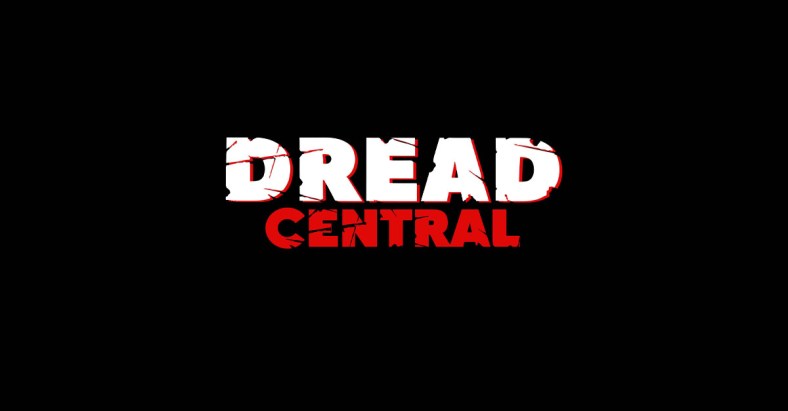The Power of Storytelling Lies in THE VAST OF NIGHT; Why It’s More Important Now Than Ever

There is a scene near the start of the third act of The Vast of Night where Fay (Sierra McCormick) and Everett (Jake Horowitz) interview Mabel Blanche (Gail Cronauer) after she calls into the radio station and asks to meet them. Parallel with an earlier scene where Billy (the voice of Bruce Davis) calls the station, what follows is not propulsive, visceral sci-fi storytelling, but rather two scenes that, on the surface, seem irreconcilable with the dynamic filmic medium– static, lengthy monologues.
Synopsis:
In the twilight of the 1950s, on one fateful night in New Mexico, young switchboard operator Fay and charismatic radio DJ Everett discover a strange audio frequency that could change their small town and the future forever.
In theory, The Vast of Night (directed by Andrew Patterson and written by James Montague and Craig Sanger) seems the least likely contender to revitalize a mid-COVID cinematic desert. While tentpole films are pushed further back and production stops on several high-profile projects, a whisper-quiet, low-fi and low-key alien invasion flick premiering on Amazon Prime has against all odds reminded audiences of perhaps the simplest truth of all– stories matter. Sure, The Vast of Night has plenty of familiar genre touchstones, including flickering lights, fog-covered forests, and insidious audio manipulation, but those aren’t the moments audiences are likely to remember. Rather, audiences will likely walk away remembering the quieter moments, somber scenes of dialogue and hushed longing and pain.
Extended sequences of bit players talking and recounting their own personal narratives should not, by all accounts, work, particularly in a genre where patience and restraint are often perceived as impediments to enjoyment, not boons. Andrew Patterson and his team, however, pull it off, and they pull it off sensationally. The reason for that, at least for me, is rooted in just how mesmerizing storytelling in its purest, most unalloyed form can be.
The Vast of Night, perhaps more than anything else, argues that sharing our stories is important, that our personal truths connect us and define us, and that only when several micro-truths are stitched together can the full tapestry of humanity be seen. A common refrain to the idea of a personal truth is that there is simply fact, no subjective truth, but that simply is not true. We live our truths every day, and as unfortunate as it is, those truths are contingent on whether the people around us believe our stories. Just because a story isn’t believed, however, doesn’t mean it isn’t true.
The Vast of Night runs with that idea, painting an absolutely astounding narrative mosaic ostensibly predicated on unidentified flying objects and “people in the sky.” As the film progresses, however, the sci-fi veneer gives way to a universal and deeply felt celebration of storytelling, plain and simple. Whether the story is alien abductions, anecdotes from a science magazine, or what, exactly, cut the power at the local high school, the denizens of Cayuga, New Mexico love sharing their stories, and the film writ large is better and richer for it.
It is incredible how every element in the film has a distinct narrative purpose. For instance, the swift tracking shot that sweeps the audience through the town is there not as a peripheral directorial flourish, but there with a clear, determined narrative purpose to demonstrate just how abandoned everything is. The characters, too, whether disembodied voices or aspirational disc jockeys, are imbued with unabashed humanity and purpose, giving the sense that they exist beyond the diegetic margins of the filmic world.
Nonetheless, protagonists Fay and Everett, charismatic as they are, are surrogates for the stories of Billy and Mabel, a black man and unmarried mother, respectively. Those character traits, like everything else, are not incidental. They are there to highlight how those living in the most marginalized and denigrated communities are people who live their almost suffocating truths every single day, and only when someone is willing to listen to them, and more importantly, willing to believe them can they finally, finally breathe. While both characters share stories of alien abduction and extraterrestrial transmissions, it is clear from the acting, the writing, and the staging that there is more there than just the surface content. Billy wants recognition for his service, recognitions he has long been denied by dint of his skin color. Mabel wants justice and vindication for the disappearance of her son, a crime she is widely suspected of having committed on account of her having a child out of wedlock.
There is power to that kind of narrative fidelity, a power made all the more potent by the film’s throwback genre trappings. Horror and science fiction have historically illuminated the truths and the stories we as a society were too afraid to tell, and The Vast of Night is no different.
As we remember the lives of George Floyd, Ahmaud Arbery, Breonna Taylor, and so many, many others, The Vast of Night, like the best that genre cinema has to offer, reminds us of the power and absolute necessity in sharing our stories, and just as importantly, being receptive to listening– really, really listening– the stories of others. The Vast of Night encapsulates exactly what people mean whey they say they love the movies, because when movies are as good as this one is, it shows us the simplest truth of all, the truth that we most often forget.

User Review
( votes)Categorized:Editorials News

